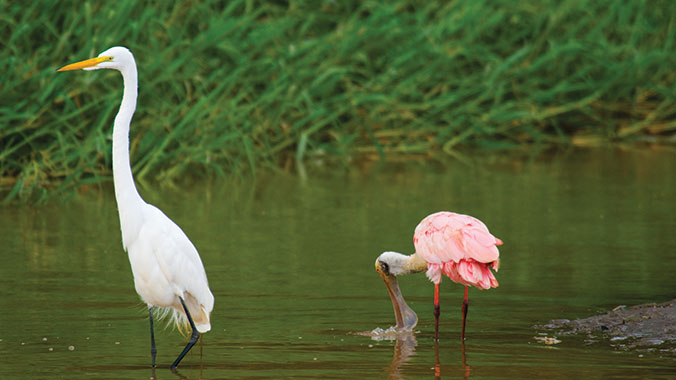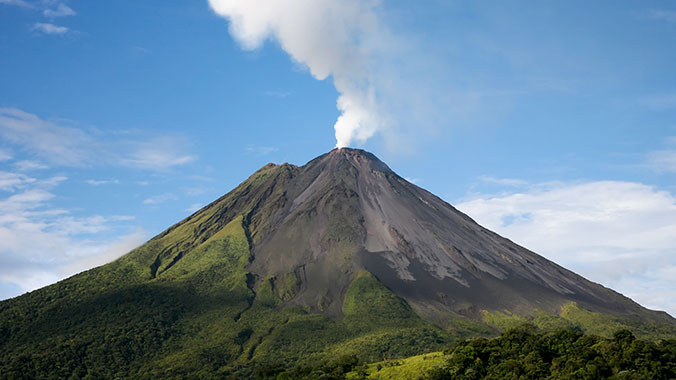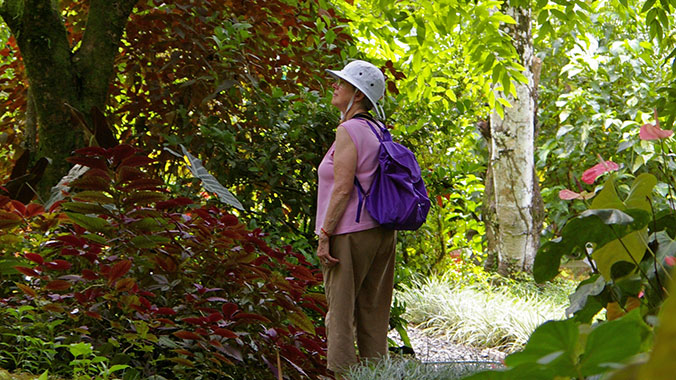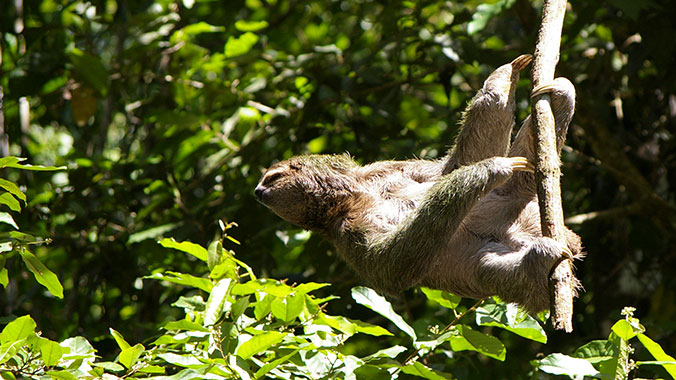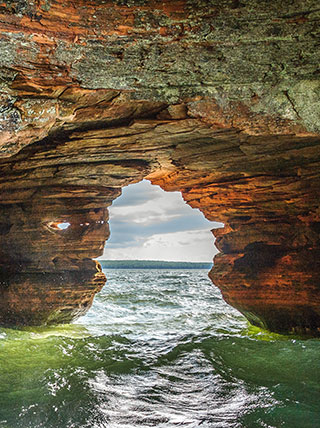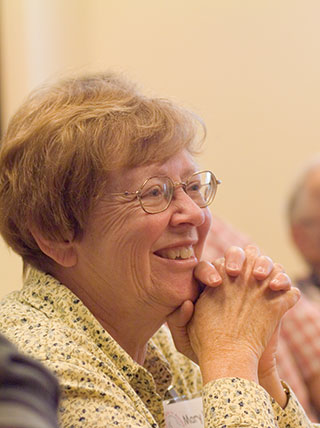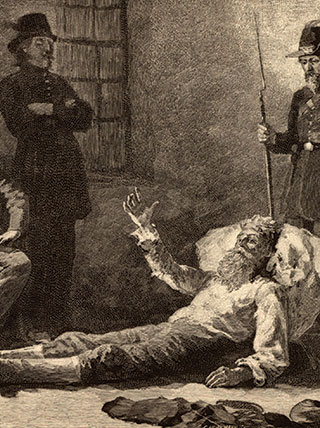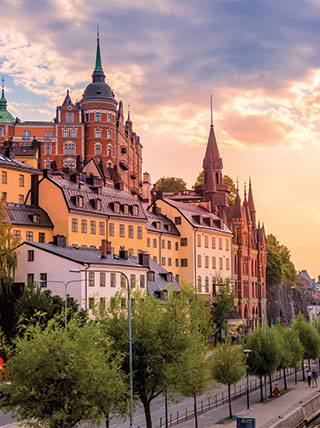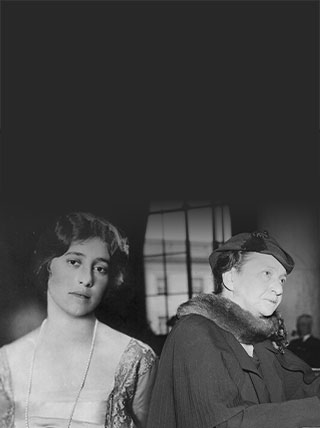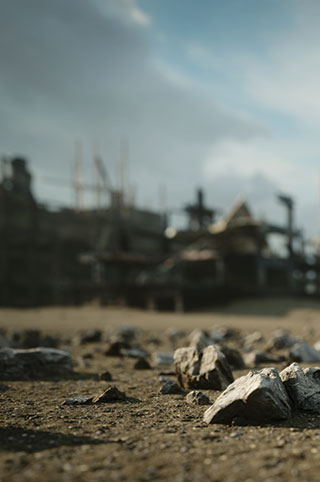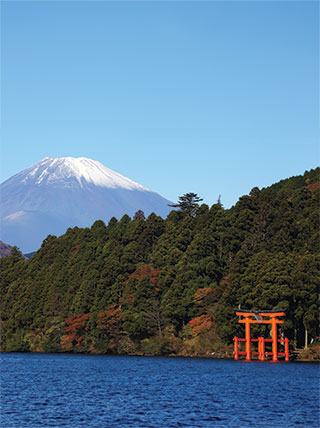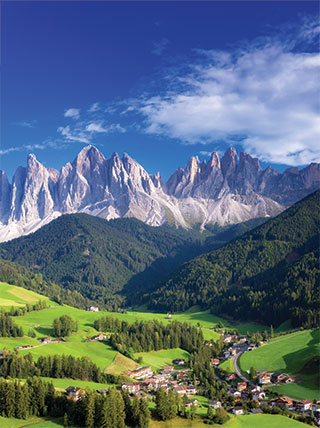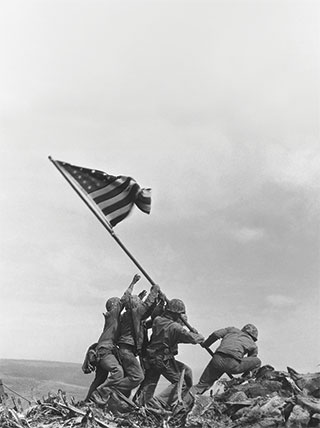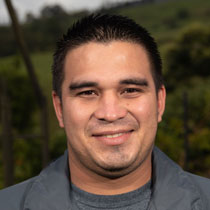
Costa Rica at a Slower Pace: Natural Wonders by Water & Land
Enroll with Confidence
We want your Road Scholar learning adventure to be something to look forward to—not worry about. Learn more
Protecting the Environment
We offset a portion of the emissions created by your travel. Learn more
At a Glance

What You'll Learn
- Observe the Arenal Volcano from two prime vantage points and learn how scientists monitor its activity.
- Encounter the mighty crocodile and other creatures of the mangroves on a Tarcoles River boat excursion.
- Enjoy several opportunities for informal conversations with Costa Rican people.

Please note: This expert may not be available for every date of this program.

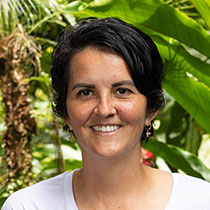
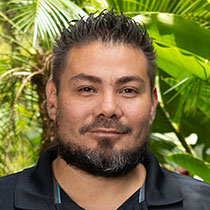
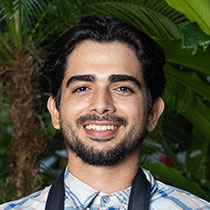
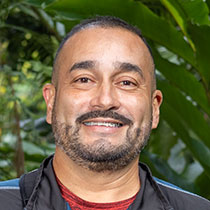
Activity note: Hotel check-in from 3:00 p.m. See your program’s “Getting There” information regarding transfers. Remember to bring your nametag (sent previously).
Afternoon: Orientation: 6:00 p.m. at the hotel. The Group Leader will greet everyone with a warm welcome and lead introductions. We will review the up-to-date program schedule and any changes, discuss roles and responsibilities, logistics, safety guidelines, emergency procedures, and answer any questions you may have. Meals on our program feature local cuisine. Unless otherwise specified, transportation during your program will be provided by air-conditioned bus. Our buses do not include onboard toilets, so we have scheduled stops during drives for bathroom breaks. Free time is reserved for your personal independent exploration. Please note that program activities, schedules, and personnel may need to change due to local circumstances. In the event of changes, we will alert you as quickly as possible. Thank you for your understanding.
Dinner: At the hotel, we'll have a Welcome Dinner.
Evening: At leisure. Continue getting to know your fellow Road Scholars, settle in, and get a good night’s rest and prepare for check-out and transfer in the morning.
Activity note: Getting on/off a bus; driving about 56 miles, approximately 2 hours riding time. Walking about 1/2 mile, standing up to 1/2 hour at a time indoors and out. If the theater is closed, we'll hold our discussions outside the building while we admire its Neoclassical architecture.
Breakfast: At the hotel.
Morning: A local expert will join us at the hotel for an informative overview of Costa Rica, providing insights into the country’s history, culture and geography. We’ll then set out on a walking field trip with our expert to explore the National Theater and the Gold Museum. We’ll take a short walk from the hotel to the Teatro Nacional de Costa Rica — the National Theater. It was built during Costa Rica’s coffee boom in the late 1800s and we’ll learn about the historical significance of coffee production as well as the theater itself. The National Theater is conveniently located adjacent to the Gold Museum. If the theater is closed, we’ll hold our discussions outside the building while we admire its Neoclassical architecture. There is ample seating in the plaza where people-watching will stimulate a discussion on demographics and the socio-economic distribution of the population. We’ll learn what it means to be a “Tico.” The Pre-Columbian Gold Museum is unique. The underground museum showcases an impressive collection of Pre-Columbian gold. The 2,000-piece collection weighs over 20,000 troy ounces making it one of the wealthiest spots in the nation. For the stamp collector, the complex also contains a philatelic museum, and coin collectors might be interested in the adjoining numismatic museum.
Lunch: At a local restaurant.
Afternoon: Next, we will board the bus and begin our ride to Sarapiquí in the Caribbean lowlands. This is one of the richest sites for birds in Middle America, with more than 400 species recorded. Nearby, the La Selva Protection Zone and the Braulio Carrillo National Park form the only significant corridor of forest on the Caribbean slope linking the highlands with the lowlands: a corridor crucial to birds and animals that undertake seasonal altitudinal migrations. After arriving at the lodge and checking in, we’ll have a brief orientation to the site.
Dinner: At the lodge.
Evening: At leisure. Gather with new Road Scholar friends on the porch, enjoy a nightcap while relaxing to the sounds of the rainforest, and get a good night’s rest for the day ahead.
Activity note: Walking up to 1 mile throughout the day; mostly flat, paved paths at lodge, irregular terrain, climbing/descending a few stone steps at archaeological site. Take preventative measures against mosquitoes.
Breakfast: At the lodge.
Morning: Wildlife aficionados and other early risers are invited to join our Group Leader on an early morning (pre-breakfast) birding walk in the lodge environs. We’ll return to the lodge dining room for breakfast. Next, we’ll take a short walk around the grounds with our Group Leader and learn to identify some of the characteristics of local and introduced plants. We’ll then board the bus and ride a short distance into the Sarapiquí community. Upon arrival, we’ll be greeted by a family and welcomed into their home. We’ll spend some time with the family, learn about the way they live in a rural community, the importance of their crops — especially pepper — as part of their economical income, their customs and beliefs. We’ll also observe as the family prepares some typical Tico dishes, helpers welcome! We’ll be accompanied by a member of the Sarapiquí Conservation Learning Center (SCLC), who will also give us an overview of their mission and talk to us about their work together with the community. Founded by Giovanna Holbrook in the mid-1990s, the SCLC is a registered non-profit organization whose mission is to link communities and conservation through education and ecotourism in the Sarapiqui region. Programs include environmental education, ecotourism activities, English classes, an ecology club, community outreach, a women’s group and many others. Note: Many participants in previous Road Scholar programs have brought a few basic school supplies such as pencils, erasers, pens, colored markers, children’s books in Spanish, etc., to donate during the visit. This is completely voluntary and is not required. We’ll ride back to the lodge after our field trips.
Lunch: At the lodge.
Afternoon: We will walk to an archaeological site on the lodge premises that includes pre-Columbian tombs, stone sculptures, and petroglyphs. We’ll then join a lodge expert on a history and culture walk through the site to learn about the region’s indigenous groups and their traditions, including the use of medicinal plants for healing. For thousands of years, the Maleku (or Guatuso) people made their home in the northern reaches of Costa Rica and southern areas of Nicaragua. Their numbers began a steady decline with the arrival of Spanish settlers who used them for slave labor and introduced new diseases. During the 18th and 19th centuries, concentrated efforts to convert the natives to Catholicism further weakened the Maleku communities. It is estimated that there are less than 200 members still living in Costa Rica. Returning to the main building, we’ll attend a presentation by a local expert about the rainforest.
Dinner: At the lodge.
Evening: At leisure.
Activity note: Getting on/off a bus; driving about 18.5 miles throughout the day, approximately 1.5 hours total riding time. Getting on/off a river boat with top and open sides for wildlife viewing; no bathroom facilities; riding approximately 1 hour. Walking about 1/2 mile; ascending/descending steps with handrail, some irregular paths.
Breakfast: At the lodge.
Morning: We will ride to a local dock and board a river boat for a nature ride on the Sarapiquí River. During the boat ride, our Group Leader will introduce birds and animals that frequent the riverine vegetation, including caimans and a variety of water birds. We’ll also take this opportunity to observe land utilization along the river banks and consider the human impact on the ecology of the river system. We will disembark in the river frontier town of Puerto Viejo and hear a talk on the cultivation of heart of palm — known locally as “palmito” — and sample some snacks made from this mild and crunchy vegetable. We’ll then then hop aboard a bus and ride to a local restaurant.
Lunch: At a local restaurant.
Afternoon: Returning to the lodge, we’ll have some “down” time to freshen up and relax. Later in the afternoon, we’ll board our bus and ride to the Costa Rica Nature Pavilion to observe hummingbirds and a large number of colorful birds such as Collared Aracaris, Green Honeycreepers, Blue-gray Tanagers, Crimson-collared Tanagers and Great Kiskadees. Our Group Leader will assist us in identifying the bird species as they come to eat at the multiple feeders around the viewing porches. The Costa Rica Nature Pavilion was founded by Dave Lando, an American expat experienced in the field of tropical agriculture and passionate about habitat restoration efforts. Putting some of his research to the test, he began planting carefully selected native trees and plants on a large tract of land he purchased in the Caribbean lowlands of Costa Rica. Through this process, he successfully recreated a number of small ecosystems within his property. The reforested lands at the Nature Pavilion now attract more than 230 bird species including migrants.
Dinner: At the lodge.
Evening: At leisure. Prepare for check-out and transfer in the morning.
Activity note: Getting on/off a bus; driving about 61 miles, approximately 2.5 to 3 hours riding time with stops.
Breakfast: At the lodge.
Morning: After checking out, we’ll board our bus and ride to a local pineapple plantation where we’ll learn about agricultural practices in the region. At the plantation, a local expert will lead us through the fields in an open vehicle to show us how this delicious fruit is grown and harvested and then go to the sorting building to see how pineapples are processed for shipping. Costa Rica is one of the world’s top five pineapple producers and exporters. Next, we’ll ride to the town of La Fortuna, situated within the shadow of the Arenal Volcano.
Lunch: At a local restaurant.
Afternoon: We’ll ride to our hotel and check in, followed by a brief orientation to the facilities and some “down time” for an opportunity to enjoy the hotel’s thermal pools. The Arenal Volcano looks like it could have been imagined by Hollywood. A near-perfect conical shape, this active volcano provides frequent thrills and threatens danger, but its activity occurs at a distance from the people of nearby towns. The combination of geography, scenery, and activity has drawn countless visitors. We’ll gather for a presentation by a local expert who will introduce the history of La Fortuna town and the volcano.
Dinner: At the hotel.
Evening: At leisure.
Activity note: Getting on/off a bus; driving about 12 miles, approximately 1/2 hour riding time. Walking about 1/2 mile and standing; mostly flat, paved paths.
Breakfast: At the hotel.
Morning: This morning’s field trip will commence with a bus ride to the Arenal National Park observation pavilion. While those who want to walk the short trail (less than 1/2 mile, approximately half an hour), the rest of the group will remain in the area near the restrooms. We will then discuss the moods of the volcano and the impact of its emissions on the human development and flora and fauna of the region. We’ll then reboard the bus and ride to the Arenal Observatory Lodge for a self-directed stroll through their museum. The lodge once served as a makeshift field station for scientists from the Smithsonian Institute who came to study the Arenal Volcano. We’ll have an opportunity for more close-up views of the volcano from the observation platform before breaking for lunch. Those who would like a little added exercise are welcome to walk to the lodge dining room via one of two trails. Those who prefer not to walk will ride on the bus.
Lunch: At Arenal Observatory.
Afternoon: We will have a choice of taking a leisurely stroll on the lodge’s nature trails or enjoying stunning views of Arenal Volcano from the hotel patio before we board the bus back to our hotel. The remainder of the afternoon is free.
Dinner: At the hotel.
Evening: At leisure.
Activity note: Getting on/off a bus; driving about 14 miles, approximately 1/2 to 1 hour riding time. Walking less than 1/2 mile; mostly flat, paved surfaces.
Breakfast: At the hotel.
Morning: We’ll board a bus for a field trip to a local farm to learn about its history and some of the agricultural traditions in this fertile region. At the farm, we’ll work-up an appetite while learning to make tortillas and cooking them on a traditional wood stove. We’ll also enjoy a presentation by a local dance group that will perform folkloric dances wearing traditional costumes.
Lunch: At the farm, we’ll have a traditional meal.
Afternoon: During our ride back to the hotel, we’ll make a quick stop at La Fortuna town for a casual walk around the charming main square. Once a small agricultural community, La Fortuna has grown in the shadow of the colossus that once burned and devastated large areas in 1968. Tourism is now the most important income for the region. Although on a second level of economic importance, many plantations in the surrounding areas still produce important amounts of papaya, sugar cane, tapioca, and ornamental plants. Returning to the hotel, the remainder of the afternoon is free. You might like to swim in the pool, soak tired muscles in the invigorating thermal spring, or just sit back and lose yourself in the pages of a good book.
Dinner: At the hotel.
Evening: At leisure. Prepare for check out and transfer in the morning.
Activity note: Getting on/off a bus; driving about 100 miles, approximately 4 to 4.5 hours with stops. Getting on/off a pontoon boat, riding approximately 2 hours.
Breakfast: At the hotel.
Morning: We'll check out of the hotel, board our bus and begin our transfer to Costa Rica's Central Pacific Region.
Lunch: At a restaurant en route.
Afternoon: Reaching the Tárcoles River, we’ll embark on a boating field trip to look for crocodiles and other riverine wildlife along the river banks and mangroves. As we navigate up the river, a local expert will provide background information on the resident crocodiles. The Tárcoles River Basin is one of the most important in the Pacific coastal region, virtually draining the entire western side of the Central Valley. Tárcoles hosts an amazing diversity of wildlife along its banks and in the extensive mangrove ecosystem. Perhaps the most famous of all the river’s inhabitants are its enormous crocodiles (Crocodilus acutus). These crocodiles have been studied by numerous local and foreign specialists and featured in TV series and specials. We’ll continue our transfer to the hotel and check in, followed by an orientation to the facilities and amenities. The remainder of the afternoon is free. We’ll regroup before dinner for a presentation by a local expert on Scarlet Macaws and conservation efforts.
Dinner: At the hotel.
Evening: At leisure.
Activity note: Getting on/off a bus; driving about 30 miles, approximately 1.5 hours riding time. Outrigger canoe activity approximately 1 hour; wear bathing suit and water shoes or sport sandals. Apply sunscreen well before water activity. Take preventative measures against mosquitoes in the late afternoon/evening hours. Walking up to 1 mile on paved park trails; closed-toed walking shoes, hat, sunscreen, repellent, water bottle recommended.
Breakfast: At the hotel.
Morning: We’ll hop aboard the bus and ride to Playa Agujas for an outrigger field trip. After a presentation on safety instructions and donning our gear, we’ll board outriggers and begin our trip along the coast. This will be a nice opportunity to observe wildlife and geological formations. We’ll then return to the hotel.
Lunch: At the hotel.
Afternoon: After lunch, we’ll board the bus for a short ride to Carara National Park. Once there, we will accompany our Group Leader on a walking exploration of the park trails in order to learn about the flora and fauna of this unique transition zone. Carara, 60 miles southwest of San José, lies at the northern limit of the Pacific lowland rainforest and the southern limit of the dry, deciduous forest. Its unique location within a transition zone means that plant and animal species from both habitats coexist in the reserve. In addition to conserving primary and secondary growth forests, Carara National Park also protects the Rio Grande de Tarcoles river basin and its rich wildlife. The park is a favored birding destination, with more than 350 recorded bird species including a sizable population of endangered Scarlet Macaws. If we’re lucky, we might see some of these birds that mate for life. Late afternoon we'll ride to a coastal restaurant to cap the day with a Pacific sunset and a sundowner.
Dinner: At a local restaurant.
Evening: At leisure. Prepare for check out and transfer in the morning.
Activity note: Getting on/off a bus; driving about 60 miles, approximately 2 hours riding time with stops.
Breakfast: Late at the hotel.
Morning: After check out, we’ll board the bus and begin our transfer to San José. During our journey back to the Central Valley, we’ll stop at La Garita to explore the Botanical Orchid Garden. Our Group Leader will provide commentary as we walk along garden paths to see and learn about the vast collection of orchids as well as heliconias, palms, and gingers. Claudio Salas, a Costa Rican botanist, dreamed of creating a place that would showcase native trees and plants, and — most importantly — his beloved orchids. Over the course of 30 years, he transformed a former coffee plantation into the beautiful tropical haven that is now the Botanical Orchid Garden. Trail signs make it easy to follow the paved trails to the various landscaped areas including attractive water gardens. The botanical garden also houses a nursery, a laboratory, and an orchid show room. The nursery features a display explaining the life cycle of orchids, revealing the various steps in an orchid’s transformation from seed to flower.
Lunch: At a restaurant en route.
Afternoon: We’ll continue our transfer to San José. Upon arrival, we’ll check in at the hotel with time to freshen up and relax before dinner.
Dinner: At the hotel. Share favorite experiences and enjoy camaraderie with new Road Scholar friends during our farewell dinner.
Evening: At leisure. Say farewells, finish packing, and get a good night's rest for departure tomorrow.
Activity note: Hotel check out 11:00 a.m. See your program’s “Getting There” information regarding transfers.
Breakfast: At the hotel (dependent on flights). This concludes our program.
Morning: If you are returning home, safe travels. If you are staying on independently, have a wonderful time. If you are transferring to another Road Scholar program, detailed instructions are included in your Information Packet for that program. We hope you enjoy Road Scholar learning adventures and look forward to having you on rewarding programs in the future. Please join our Facebook page and share photos of your program. Visit us at www.facebook.com/rsadventures. Best wishes for all your journeys! Y
Recommended For You


